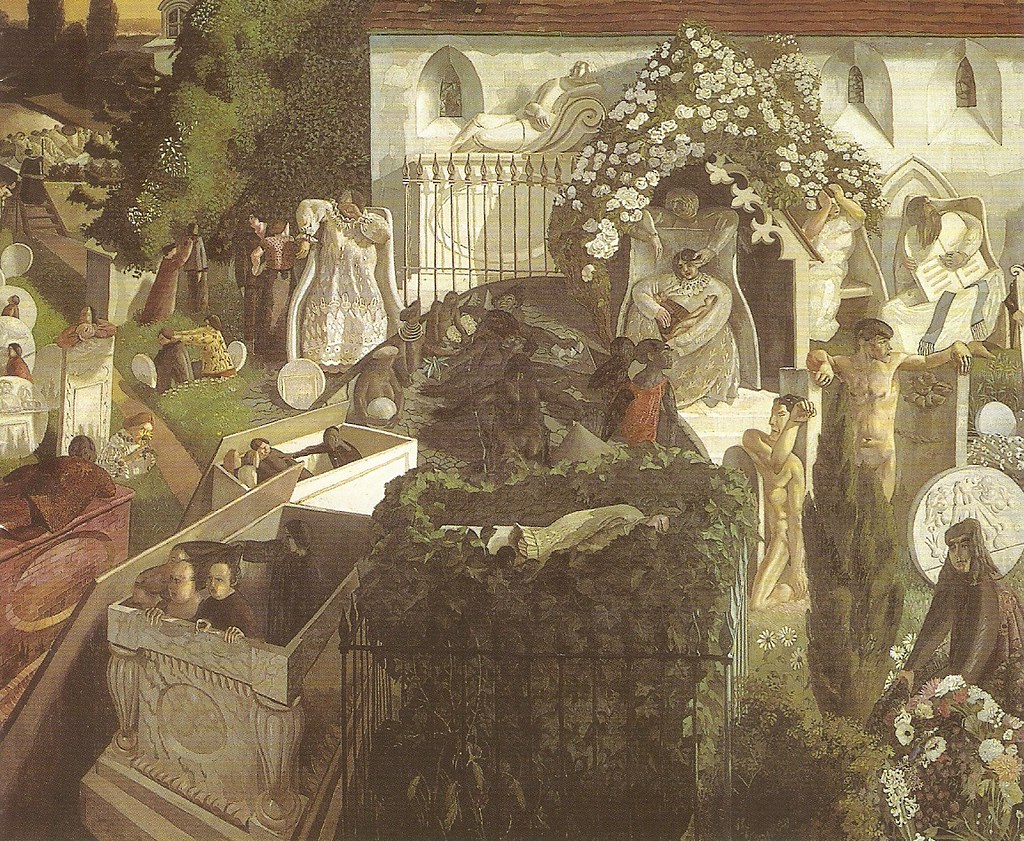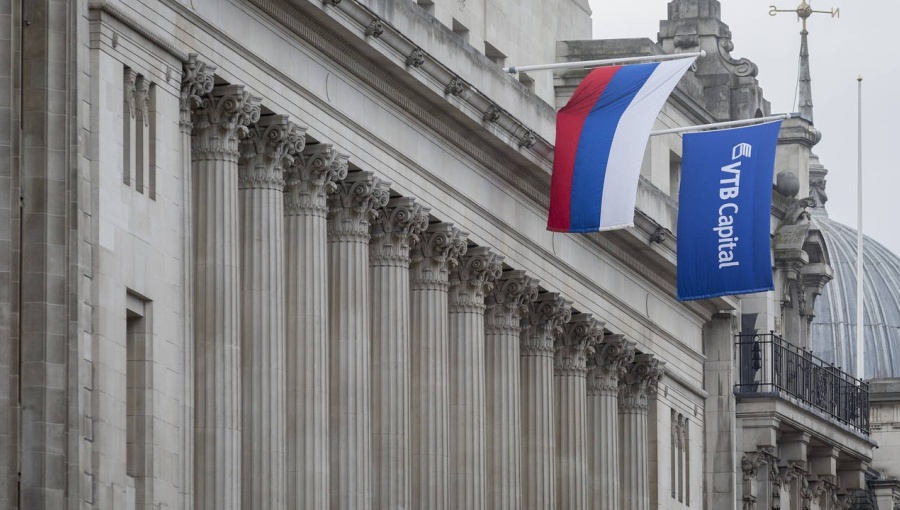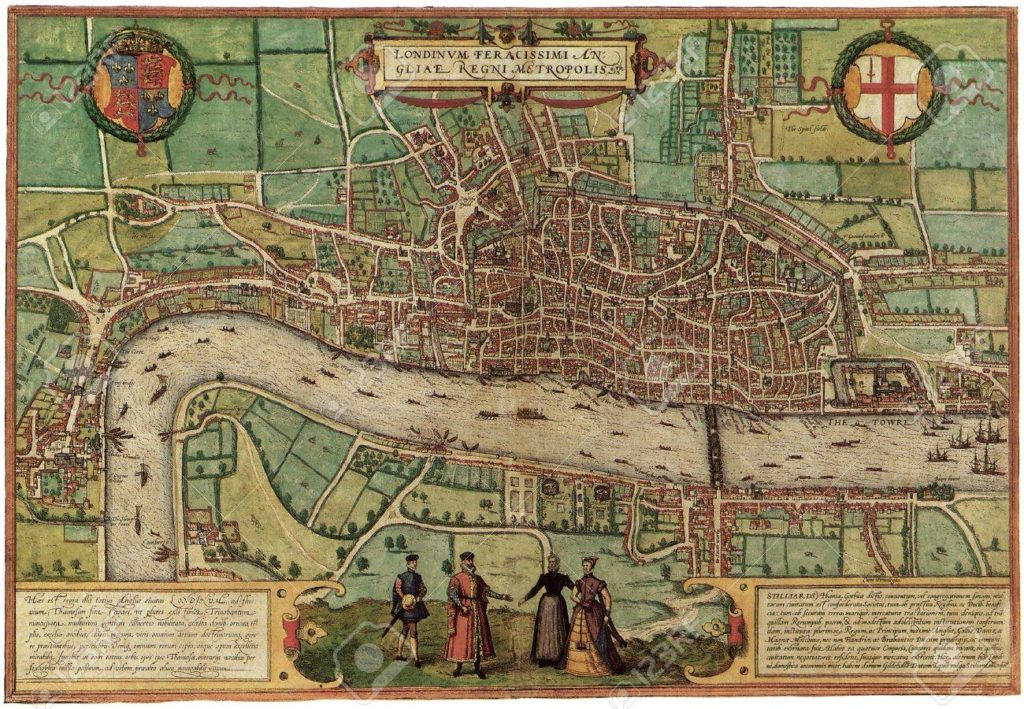The Domination System
A reading from the Fifteenth Chapter of the Holy Gospel of John
I am the vine, you are the branches. Those who abide in me and I in them bear much fruit, because apart from me you can do nothing. Whoever does not abide in me is thrown away like a branch and withers; such branches are gathered, thrown into the fire, and burned.
Please be seated.
The City’s spokesman tells me that the City Cash, the City’s private money, is used for “various philanthropic purposes for the benefit of all Londoners.” So let’s take a look at one of these City Cash purposes to get a better idea of how the City Corporation understands philanthropy. This will also give us a clue as to how it sees itself.
The “purpose” in question? To promote the financial services.
In 2008 the City Corporation took the decision to help set up a new forum to advance the interests of the financial services. In 2010 this group became CityUK. Today it is one of the most effective City lobbyists, a kind of doctrine commission for the financial services.
I was at the non-public Council meeting when the decision to support the setting up of this body took place. This proposal incited an unusual debate (debate itself being unusual in this chamber) as to the purpose of the City Corporation itself. One Councillor said we spent too much time in the City promoting and selling and too little time understanding – to which the Chairman of Policy replied that this represented “a misunderstanding of the Corporation’s role” within the life of the City and the nation.
But as CityUk comes under scrutiny again we can learn much about how this lobby group is organised by looking at its key sponsoring institution, the City Corporation. If the branch indicates the health of the vine so it is through its roots, its origins, that you shall know its fruits.
The Domination System is more important than the individual
On 4th December 2008, six weeks after the banks had stared into the bonfire of the equities, the Corporation meets for its monthly lunchtime Court of Common Council meeting. This is normally a Pooterish affair, preceded by a buffet lunch of scampi and dill sauce in the Members’ Dining Room and followed by drinks and gossip in the Members’ bar. The public assembly part itself is the civic equivalent of the notices at the end of Mass: the assorted mumbo jumbo of parish pump politics in the context of high church ceremonial.
December’s is the final Council meeting before the Christmas break and the first of its incoming Lord Mayor. As is the custom, the newcomer heaps generous praise on the former for his year in residence at Mansion House and, in doing so, asserts seamless institutional continuity, stability, control.
The first thing to note is that what is important for the City is the continuity of the historic office of Lord Mayor rather than the particularities of the man who occupies it at any one time. In any case these men are largely interchangeable from year to year. Unlike the elected Mayor of London, the Lord Mayor of the City of London, effectively appointed annually by the Court of Alderman, should ideally have no visible personality at all. Indeed the one qualifying characteristic of all Lord Mayors is that they can pass as political ciphers, better to serve the interests of the international capital markets. That’s the nature of the Domination System.
This one, we are told, has been a safe pair of hands at the helm of the ship at time of particularly choppy waters in the world’s economy. Over the course of his year in office he has hosted a series of “glittering” state visits and has fronted a range of equally successful foreign delegations. He has wide charitable interests, a distinguished career, a lovely wife. I forget his name.
The Domination System is always dramatically enacted
 As the end of the public part of the meeting draws to a close, the City Marshall is called upon to clear the gallery. It is time to move into the non-public zone of the meeting. About five or six people shuffle out at this point. This number includes an elderly couple who always come to the meeting of the Common Council as part of their monthly schedule of retirement entertainment. As they slip away, the City Marshall, in full military get-up marches from the elevated dias, where the Lord Mayor is sitting surrounded by his Aldermanic Barons, to the “bar”, really just a low shelf, separating the Common Council from the seats at the back of the Guildhall. It is here, turning to face the Lord Mayor, that he declares the successful evacuation of all “strangers” from the Hall, oyez, oyez, oyez. Then he marches back to his seat.
As the end of the public part of the meeting draws to a close, the City Marshall is called upon to clear the gallery. It is time to move into the non-public zone of the meeting. About five or six people shuffle out at this point. This number includes an elderly couple who always come to the meeting of the Common Council as part of their monthly schedule of retirement entertainment. As they slip away, the City Marshall, in full military get-up marches from the elevated dias, where the Lord Mayor is sitting surrounded by his Aldermanic Barons, to the “bar”, really just a low shelf, separating the Common Council from the seats at the back of the Guildhall. It is here, turning to face the Lord Mayor, that he declares the successful evacuation of all “strangers” from the Hall, oyez, oyez, oyez. Then he marches back to his seat.
It is a brilliantly camp piece of political theatre. And it comes from the same production company, with the Pikemen and Musketeers as extras, that gives us the Silent Ceremony, the sharing of the Livery’s Loving Cup as well as the Lord Mayor’s parade itself. Some say that these pageants and performance pieces are merely colourful and entertaining but largely irrelevant interludes, heritage rather than living history. Nothing to take too seriously: harmless fun, colourful history, essentially redundant.
Not so. These rituals are ways in which we consolidate power relations, who’s in and who’s out, who’s part of the vine and who’s to be thrown into the fire and burned. It’s how we separate the public business from the private business. It’s how we evacuate strangers. Actually these are the liturgies of finance capitalism. And as we look at the way the City pursues its particular purposes these help us interpret them as part of a wider religious system. This is the second thing to note.
The Domination System hinders self critical thinking
The third thing to note is related and it is as follows. The City’s liturgies have no rite of confession. They have no mechanism to acknowledge transgression, nor open up the possibility of grace and fresh imagination. With the systemic failure of the ballot box ever to interrupt the consensus, there is no point of reckoning with past sins and therefore no real possibility for new directions and new energies for the future. All business collapses into an edgeless airless present.
When the galleries are cleared and the doorways are sealed, the Chairman of Policy, Mr Stuart Fraser, rises to introduce a previously circulated ‘non public’ report, “Promoting London’s Financial Services.”
Enterprising a sentence with no subject. Delivering an on-going programme of present participles. Offering a fiesta of “maintaining and enhancing” that managed to avoid any real reckoning with those nasty little nowns of 2008 such as debt or collapse or toxicity. Fraser explained to the Council Assembly:
“we do not make judgements about what went wrong, other people do that. We are apolitical which means we often have to bite our tongues. Getting involved in politics is a total misunderstanding of our role. Our task in the City Corporation is to turn a political crisis into a political opportunity.”
In other words the Corporation is an institution keen to sustain its own life – “to bolster our promotional efforts” and to “safeguard what we term the City ‘brand'” – without asking the difficult question: what’s actually gone wrong?
Two months after the City witnessed banking at the brink, after the worst collapse of confidence in the financial services in living memory, the City sees its role as cheerleader-in-chief for a new lobby group – the CityUK (“partnering prosperity”). The money the City continues to give to this lobby group enables it to maintain control of key appointments and key policy directions. So, for example, the report requires that “the overall composition of the Board and the choice of its chairman would be the City Corporation’s prerogative.”

Though funded out of the City’s Cash – the fund that we are told serves “a philanthropic purpose for the benefit of all Londoners” – is it not inevitable this new cutting will grow into a plant with the same fungus in its roots and the same diseased and toxic fruit at its leaf? In due course will not its branches need to be gathered and thrown into the fire and burned?
The Christian counter-narrative of the Commons
In the meantime it is our task to tend the vineyards of our Commons. For Christians, flourishing is necessarily relational: the fruiting branch is always part of the vine and the health of the leaves and the health of the roots is intimately connected. It is not a mediated and abstracted principle. It’s about sharing with one another the little we have so that together we have an abundance to enjoy. The key word in our scripture today is “abiding”. It invokes a lovely mutuality between separate bodies over time.
We like to form ourselves into cells. That’s why we meet together in upper rooms and small conventicles to sing hymns and spiritual songs and that’s why we operate as motley crews arranged into parishes and chapters and deaneries and dioceses. That’s why the Church is always experienced as local and particular, even where it may also be experienced as institutional and international. And that’s why the key Christian virtue is charity, the love of neighbour, a calling to reciprocity, rather than philanthropy, the abstracted love of Mankind, where the relationships are always refracted through grant generating bodies and Corporate Social Responsibility officers and the giving always seems to roll down-hill.
And the City of London is that city set on a hill, a demonic parody of our calling as Christians to be a beacon and to proclaim an alternative reality. This Square Mile, which once bankrolled an empire, is still an imperious force in our nation’s life. The City retains the arrogance of power, not just because of its money and its resources, but because of its unchallenged authority. And because its governing body, the City Corporation, is part of the Ancient Constitution its position is institutionally guaranteed through a network of ritual relationships, symbolically enacted. In other words the City has locus without being confined to a physical location: it is everywhere.
This institution and these relationships advance what may be termed the Domination System. This system doesn’t begin and end with the City of London but here is the place where its doctrines are most clearly articulated. And in so far as it has its Gods and its high priests and its narratives of salvation and in so far as it sustains a range of practices that bring apparent coherence to random events and seeming meaning to our lives, the Square Mile is the Vatican City of this religion. Guildhall is the cathedral. And CityUk is a Pontifical Council.
It is magnificent and it is idolatrous. And it needs to be regenerated.
And all for His sake.
Parishes Notices
In Memoriam: Walter Wink (May 21, 1935 – May 10, 2012), theologian and peace activist
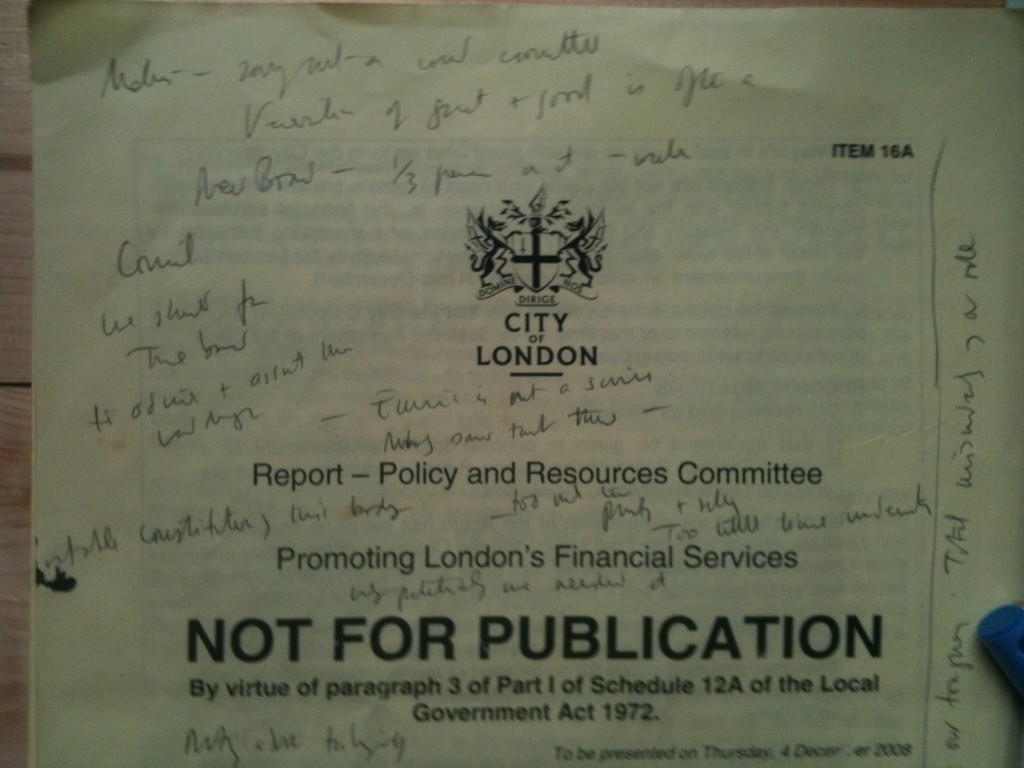

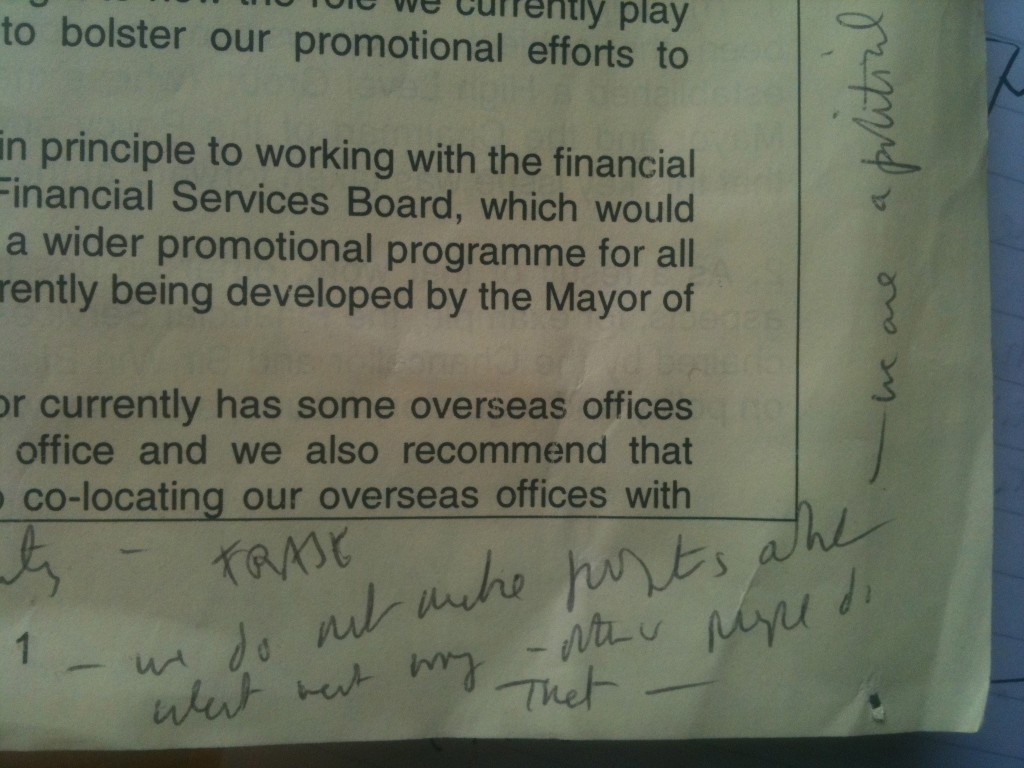
 Previous Post
Previous Post Next Post
Next Post
